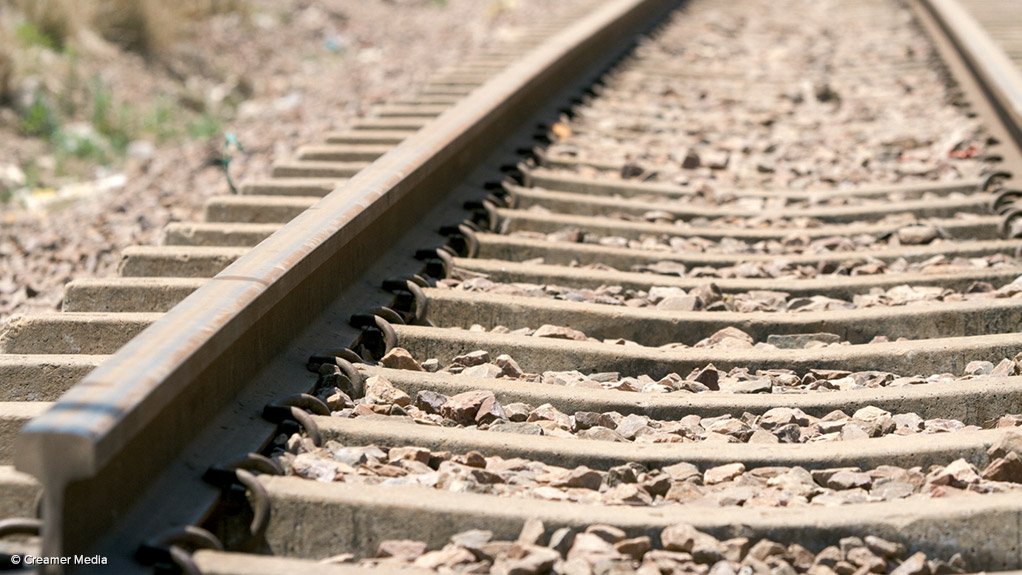Transport Minister Fikile Mbalula on March 15 joined Passenger Rail Agency of South Africa (PRASA) chairperson Leonard Ramatlakane in Pretoria for the launch of the People’s Responsibility to Protect (PR2P) project.
The project is aimed at creating partnerships between PRASA and local communities living near railway lines, where communities will provide a "force multiplier" to assist PRASA security personnel in protecting rail infrastructure.
Members of the community will receive basic rail-related security and safety training to patrol and help guard rail infrastructure.
Mbalula said the PR2P project was a concept borrowed from the United Nations World Summit on Responsibility to Protect, which had been customised to address the challenges facing PRASA by partnering with communities and key stakeholders.
He noted that the project elevated the stakeholders' responsibility to protect public assets, in respect of both PRASA and Transnet's rail infrastructure, rail reserves and network, as well as the prevention of crime in the rail environment.
“The focus of the intervention seeks to manage the downward spiral resulting from rampant criminality through the implementation of crime prevention strategies, working with communities and stakeholders,” said Mbalula.
He added that an awareness campaign, a communications campaign and other interventions that included the resumption of train services, would ensure that interventions were responsive to the needs of the users of the system and that commuters and communities were regularly informed of all developments that impacted on them.
“The interventions will include community projects creating opportunities for women and youth-owned cooperatives in areas such as the cleaning of stations, as well as construction and maintenance of stations,” said the Minister.
The project will be implemented in phases.
“The first phase entails the rollout of a public engagement programme led by the PRASA board, which will engage with community stakeholders, community police forums, railway police, local municipalities, civic organisations and other relevant community-based organisations and nongovernmental organizations in all PRASA regions. These regions are Gauteng North, Gauteng South, the Western Cape, the Eastern Cape and KwaZulu-Natal.”
“The second phase entails training volunteers to understand their roles in terms of the security and neighbourhood watch. They will also be trained on how to work with communities, with the police and PRASA Protection Services in an integrated manner that makes a telling difference,” the Minister said.
Mbalula added that, upon completion of the security training, volunteers would be equipped with Grade C security certificates accredited by the Private Security Industry Regulatory Authority.
“A total of 9 860 community-based volunteers will partner with PRASA nationwide, focusing specifically on stations and corridors experiencing the most crime. Once the volunteers are trained and accepted, they will assist in the reduction of crime and vandalism risk inside the trains, on platforms, at ticket offices, and other rail infrastructure, and protect rail commuters.
“Community volunteers will be in partnership with PRASA for a duration of 12 months and will undertake various key integration activities under the guidance of PRASA security,” the Minister said.
Mbalula said that the third phase would entail the integration of 20 volunteers from each station area into the 46 PRASA corridors. He further stated that 1 500 police reservists would be deployed and trained across all 46 corridors, with the long-distance train corridors exclusively making use of the existing Railway Police contingent.
Further, 80 military veterans will be deployed in the 46 corridors, where they will be performing duties of corridor coordination. The primary focus will be on the 16 functional corridors as the first phase of the implementation process.
“Facilitation of the deployment at stations, on the trains, on the platforms, across rail infrastructure and the outer perimeters of the rail precinct will be undertaken. This will be done concurrently with the integration of the volunteers, police reservists, community police forums, military veterans and PRASA Protection Services.”
“Our efforts to restore the service and deploy new trains require the kind of partnership we are launching today with all stakeholders. We have begun the process of introducing the new trains in various corridors. Protecting these assets is a collective responsibility we must all shoulder,” Mbalula said.
EMAIL THIS ARTICLE SAVE THIS ARTICLE ARTICLE ENQUIRY
To subscribe email subscriptions@creamermedia.co.za or click here
To advertise email advertising@creamermedia.co.za or click here











